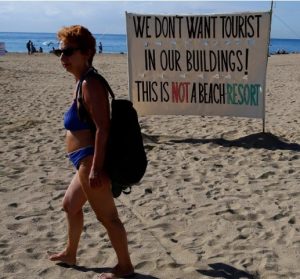
Spain Plans 100% Property Tax on Non-EU Buyers to Combat Housing Crisis
- Diplomatic NewsTravel
- January 16, 2025
- No Comment
Spain Plans 100% Property Tax on Non-EU Buyers to Combat Housing Crisis
Spain is taking bold steps to address its worsening housing crisis by introducing a 100% property tax on homes purchased by non-EU residents. The measure, announced by Spanish Prime Minister Pedro Sánchez, aims to ease pressure on the housing market and prioritize affordability for local residents.

Over recent years, housing costs in Spain have surged dramatically, driven by over tourism and the widespread use of short-term rental platforms like Airbnb. Cities such as Barcelona and Madrid have seen rents skyrocket, leaving local incomes unable to keep pace. The new tax is part of Spain’s broader efforts to make housing accessible to residents and limit the impact of foreign buyers, who often purchase properties for profit rather than personal use.
Prime Minister Sánchez revealed that non-EU residents acquired around 27,000 homes in 2023 solely for investment purposes. He emphasized that prioritizing housing for residents is essential for economic stability and societal well-being.
The tax won’t outright prohibit non-EU residents from purchasing property in Spain, but it will make it financially challenging for many. While Sánchez did not specify the timeline or finer details of implementation, the policy is expected to discourage speculative investments by foreign buyers.
EU residents, however, will not be subject to this tax due to Spain’s obligations under European Union regulations. Additionally, individuals who already own properties in Spain are unlikely to be affected directly, although future changes to capital gains taxes remain a possibility.
The tax is just one of several measures Spain is implementing to tackle its housing crisis. Tourism-heavy cities, including Barcelona, have already started to restrict short-term rental licenses. Barcelona froze new licenses in 2014 and plans to eliminate existing tourist rental permits by 2028. Other cities are considering higher taxes on holiday rentals to curb their impact on local housing markets.
Protests against over tourism and high rental costs have also erupted in popular tourist destinations like the Balearic and Canary Islands. Demonstrators argue that tourism-driven demand has made housing unattainable for local residents.
Spain has also moved to phase out its golden visa program, which allowed wealthy foreigners to gain residency by investing at least €500,000 in real estate. While the scheme attracted international investors, it has also been criticized for driving up property prices in urban centers like Barcelona, exacerbating the affordability crisis.
Spain’s tourism industry remains a double-edged sword. While a record 94 million international travelers visited the country in 2024—marking its best tourism year on record—the influx has strained housing and infrastructure in many cities. As a result, the government is increasingly pressured to balance the needs of its booming tourism sector with the housing demands of its residents.
Spain’s bold property tax initiative reflects its commitment to tackling the housing crisis and safeguarding residents’ interests. However, the policy’s success will depend on its execution and its ability to balance economic growth with housing accessibility. For now, Spain is setting a precedent for other nations grappling with similar challenges posed by over tourism and foreign investment in real estate.







